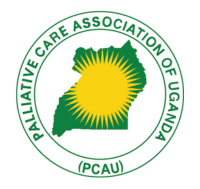By Lisa Irumba Christine
In the peri-urban community of Makindye lives Matia (not real name) a middle-aged gentleman with Diabetes Mellitus. Matia usually sits on the veranda of his house shaded from the busking sun in the city these days. Matia had a double amputation from the knees and partial blindness in his eyes due to complications from Diabetes. He is not just another patient but rather a beacon of resilience, with his spirit unwavering despite his physical limitations. Matia spends most of his time at home, yet his laughter brings warmth to all who cross his paths.
Matia is regularly visited by the palliative care team at home but while sharing some of his stories, he tells a tale of some communication challenges he encountered when accessing health care.
At the Palliative Care Association of Uganda (PCAU), we have been engaged in disability inclusion work since 2015 when our partnership with the Uganda National Association for the Deaf (UNAD) commenced. Recently we worked with Lena Dougherty an intern at Global Partners in Care and experts from Light for the World to develop Information, Education, and Communication materials for palliative care teams. We hope these will improve their knowledge and skills as they support children and adults with disabilities receiving care from hospices and the palliative care units in Uganda. Our approach to disability inclusion in palliative care is a cross-cutting issue since dignity and comfort should know no bounds.
We at PCAU were excited to share these materials on our social media platforms and we will be printing, and disseminating them countrywide. We hope that these materials will promote disability inclusion through educating and empowering the palliative care teams and the public on the importance of inclusive practices while encouraging empathy, understanding, dignity, and respect for all patients with palliative care needs who have a disability.
The easy-to-use guides include information on
- Dos and Don’ts when communicating with a deaf person.
- Supporting physically disabled persons in a palliative care setting
- Supporting deaf persons in a palliative care setting
- Dos and Don’ts when interacting with persons with mobility disability
Please view the guides here













Comments are closed.